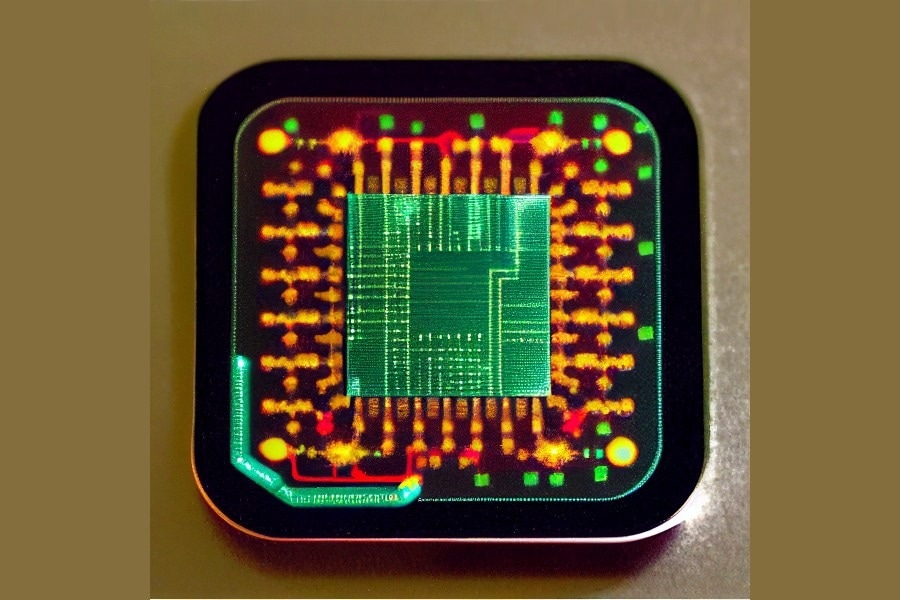Biological computing or biocomputing can revolutionize computers and medicine from early diagnosis and internal cure of diseases to futuristic applications like expanding human memory.

A biocomputing chip made of bacteria. Image Credit: College of Biological Sciences
Conventional computer hardware is restricted in its capacity to interface with living organs, which has limited the production of medical devices. Computerized implants need a consistent electricity supply, they can lead to scarring in soft tissue that turns them unusable, and they cannot cure themselves as organisms could. Through the application of biological molecules like proteins or DNA, biocomputing can win over these restrictions.
Biocomputing is usually done with both live cells and non-living, enzyme-free molecules. Live cells have the potential to feed themselves and can cure, but it can be challenging to redirect cells from their usual activities toward computation. Non-living molecules resolve certain concerns of live cells but have poor output signals and are challenging to fine-tune and manage.
In a new study published in Nature Communications, a group of scientists at the University of Minnesota has built a platform for a third approach of biocomputing: Transcriptional RNA Universal Multi-Purpose GatE PlaTform or Trumpet.
For DNA-based molecular computing, Trumpet employs biological enzymes as catalysts. Scientists conducted logic gate operations, just like the operations performed by all computers, in test tubes with the use of DNA molecules. A positive gate connection leads to a phosphorescent glow. The DNA forms a circuit, and a fluorescent RNA compound gets illuminated when the circuit is finished, similar to a lightbulb when a circuit board is assessed.
The study group demonstrated that:
- The Trumpet platform has the ease of molecular biocomputing along with extra signal amplification and programmability.
- The platform is dependable for encoding all universal Boolean logic gates (NOT, NAND, AND, NOR, and OR), which are basic to programming languages.
- To build more complex circuits, the logic gates can be stacked.
- The team built a web-based tool enabling the design of sequences for the Trumpet platform.
Trumpet is a non-living molecular platform, so we don't have most of the problems of live cell engineering. We don't have to overcome evolutionary limitations against forcing cells to do things they don't want to do. This also gives Trumpet more stability and reliability, with our logic gates avoiding the leakage problems of live cell operations.”
Kate Adamala, Study Co-Author and Assistant Professor, College of Biological Sciences
Trumpet has incredible potential in the future while it is still in its early experimental stages. “It could make a lot of long-term neural implants possible. The applications could range from strictly medical, like healing damaged nerve connections or controlling prosthetics, to more sci-fi applications like entertainment or learning and augmented memory,” stated Adamala.
Study lead author and PhD candidate Judee Sharon is employing Trumpet to build biomedical applications for the early detection of cancer. Another likely application is “theranostics”—integrated therapeutics and medical diagnostics within the body. For example, a biological circuit has the possibility to diagnose low insulin levels in a diabetes patient and trigger proteins to produce the required insulin. This type of device could be tiny enough to circulate in the patient’s bloodstream.
Source:
Journal reference:
Sharon, J. A., et al. (2023). Trumpet is an operating system for simple and robust cell-free biocomputing. Nature Communications. doi.org/10.1038/s41467-023-37752-x